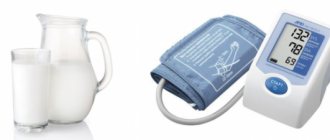Any food product contains microelements that have a positive or negative effect on the functioning of vital organs. People who suffer from hypertension (high blood pressure) often face special diets and contraindications.
At the end of summer, watermelon becomes a very popular delicacy. It is considered a low-calorie and refreshing fruit and also has beneficial properties for the human body. That is why people who have problems with the cardiovascular system often have questions about how watermelon and blood pressure are related and whether consuming the giant berry increases or decreases its levels.
Useful properties of watermelon
Watermelon is one of the most desirable seasonal crops, however, in addition to its excellent taste, it can please a person with many useful qualities. The pulp actively removes toxins, since the high concentration of water contributes to an excellent diuretic effect. This also makes it possible to quickly and effectively cleanse the kidneys and genitourinary system of all kinds of stones.
Did you know? While many people throw away watermelon seeds, they are a valuable food item in some countries. In Africa, they are added to all sorts of dishes, including soups, and in China, roasted seeds with spices are the best snack.
Quite often, watermelon is used as a safe means to activate the digestive system. It contains important vitamins for the process (C, group B), carotene, food acids (folic, pantothenic), as well as magnesium. The same composition also has a beneficial effect on the functioning of the cardiovascular system and liver, protecting the body from anemia, gout, and bile stagnation. The huge amount of fiber in watermelon helps get rid of bad cholesterol, which is considered the main cause of atherosclerosis.
Watermelon pulp can be called the best assistant for losing weight and maintaining a healthy body shape. It contains extremely healthy and easily digestible sugars, which are not contraindicated even for diabetics. One kilogram of fruit contains only 250–500 kcal, which allows you not only to enjoy the juicy pulp without harming your figure, but also to create easier and more enjoyable fasting days.
Do not forget that watermelon has a positive effect on health when applied topically. Fruit juice is one of the best natural remedies that can relieve swelling from damaged tissues. And when used periodically in the neck and face area, it can rejuvenate the outer skin, giving it freshness and silkiness.
The skin and seeds of the fruit also have valuable properties. All kinds of decoctions from dry peels make it possible to eliminate the manifestations of swelling associated with pathologies of the heart and kidneys, as well as acute and chronic manifestations of colitis and rheumatism. The seeds, in turn, when used correctly, can have an antiparasitic, anti-inflammatory effect, and also overcome jaundice.
Did you know? The world's largest watermelon was grown in the USA in 2005. The local Bright family of farmers managed to obtain a fruit weighing 122 kg.
How to use?
Doctors recommend consuming both the pulp of the fruit in its pure form and various infusions from its rind, watermelon fruit drinks, juices and decoctions.
The daily norm for hypertensive patients is 2.5 kg. Even a healthy person is not recommended to consume more than three kilograms of berries per day.
To prepare a useful and safe folk remedy, it is necessary to separate the watermelon pulp from its rind.
Cooking method:
- Remove the top, colored layer with a knife and place the remaining parts on a baking sheet.
- Place in oven or electric dryer. Drying lasts until all the moisture has evaporated and the crusts become brittle (for this it is recommended to periodically check their condition).
- The outer side of the berry is baked at a temperature of 60 degrees (with an increase in power, all the beneficial properties of the fruit will disappear).
- Once fully cooked, the peels are ground to a powder.
And also read on our website: How does cherry affect blood pressure - does it increase or decrease it? How to take for hypertension
Use one teaspoon of powder three times a day. The duration of treatment should not exceed 30 days.
In order not to provoke unpleasant complications, it is recommended to approach watermelon therapy correctly: consult your doctor about the possibility of using the fruit, study all contraindications and follow all the rules for consuming the giant berry.
How does watermelon affect blood pressure?
Many studies have been conducted on the usefulness and safety of watermelon for high blood pressure. However, many hypertensive patients still do not fully know whether the product is contraindicated for them, or whether it reduces blood pressure. For a long time, doctors could not definitively determine whether it lowers or increases blood pressure and how this effect occurs on the body.
Today, almost all doctors insist that when consumed in moderation, watermelon has an antihypertensive effect, regardless of the duration and activity of the pathology. Due to its rich composition, the fruit is able to dilate blood vessels, which causes a decrease in blood pressure.
As a result of consuming watermelon pulp, the body receives all kinds of amino acids, which, under the influence of metabolism, are transformed into arginine. It is this substance that plays the main role in dilating blood vessels and regulating pressure.
However, with excessively active use or due to individual reactions of the body, eating the fruit can also cause a short-term increase in blood pressure. In this case, the answer to the question of whether the pressure can rise will most likely be positive. This happens due to the increased water content in the pulp, which creates additional stress on the kidneys. As a result, this leads to the involuntary occurrence of acute hypertensive manifestations even in healthy lovers of the fetus.
Find out more about the vitamin composition and beneficial properties of watermelon.
Than the heart will calm down
Magnesium has another valuable property: it lowers blood pressure.
“Working in tandem” with calcium, this trace element ensures regular constriction and dilation of blood vessels as needed. Magnesium and calcium lower blood pressure by removing sodium from the body.
Article on the topic
What to look for when choosing watermelons and melons?
And the fiber contained in watermelons, entering the intestines, attaches excess cholesterol to its fibers and removes it from the body.
Is it possible and how to eat watermelon if you have hypertension?
Eating berries for hypertensive patients is not only not prohibited, but is also a necessary measure. Even in small quantities, it can improve the condition of the body, as well as protect it from sudden surges in blood pressure. Most nutritionists recommend consuming the fruit as an independent product, which will increase its digestibility and also help protect against possible negative consequences.
To do this, the berries are consumed separately, instead of one of their regular meals. It can also be used to satisfy hunger between main meals, no earlier than 2 or 2 hours after the main meal. The maximum daily amount of product recommended by doctors is within 3 kg, but hypertensive patients are not recommended to consume more than 1.5 kg. This amount must be divided into several even doses.
But it is most beneficial to consume watermelon daily in small portions during the afternoon snack. In this case, 500 g of berries every day can have a powerful therapeutic effect on the course of hypertension, as well as the general condition of the body.
Important! It is forbidden to eat berries before or after salty foods. Excess salt provokes fluid retention in the tissues, which, with high blood pressure, can cause a hypertensive crisis.
There will be no stones
Watermelons contain a record amount of magnesium. It prevents the formation of oxalate stones in the kidneys and bladder, which most often consist of calcium and oxalic acid salts. By increasing magnesium in the diet, recurrences of urolithiasis are reduced by 90%.
What foods contain magnesium →
Add the diuretic effect of watermelon. As soon as magnesium has time to bind dangerous oxalates, watermelon juice “washes” them out of the body with a powerful stream. Thus, the beneficial effect is doubled. Watermelon prevents the formation of stones not only in the kidneys, but also in the gall bladder. After all, magnesium reduces nervous excitability, relieves pain, calms spasms of the bile ducts and improves the passage of bile through them, reducing the risk of stone formation.
At the height of the season, it is useful to eat these fruits every day: just 200–300 g per day will provide the body with magnesium in excess. At the same time, it is useful to increase the amount of foods containing vitamin B6 in your diet: liver, chicken, salmon, beans, brown rice.
Possible contraindications
Despite the enormous benefits for the body, eating watermelon can also cause considerable harm.
- The berry is not recommended for use if:
- stones in the genitourinary system;
- violation of urine drainage;
- kidney pathologies;
- intestinal disorders, including colic;
- flatulence;
- all kinds of metabolic disorders;
- stomach ulcers;
- severe stages of diabetes;
- pregnancy and breastfeeding.
Can it cause harm?
Watermelon is a fairly juicy fruit. When consumed in large quantities, it raises blood pressure for a short period of time. This is due to the fact that excess fluid in the body increases the load on the channels of large and small arteries.
According to studies, it has been proven that watermelon contains about 92% liquid.
It is better to consult a doctor about whether this berry can be eaten by people who have problems with the kidneys and the removal of fluid from the body.
The berry is contraindicated for people with the following health conditions:
congenital anomalies in the genitourinary system;- urolithiasis disease;
- colitis;
- diarrhea;
- atherosclerosis;
- pathologies of the cardiovascular system, which are accompanied by poor fluid outflow;
- prostate adenoma.
Watermelon is not contraindicated for people suffering from low blood pressure. It increases the number of red blood cells in the blood, improves the absorption of iron in the body, and increases oxygen concentration. The only thing that medical experts recommend is to consume the fruit in the first half of the day, observing the daily norm for people with hypotension (low blood pressure).
The recommended dosage is no more than 4-5 pieces. However, each body is individual and it is better to discuss all the nuances with your doctor.
Useful recommendations for use
In order for the consumption of watermelon to bring only benefits, and also to have an extremely positive effect on your health, you must adhere to the following rules:
- Only ripe fruits are safe; they go on sale no earlier than the beginning of August;
- The berries must be washed thoroughly, as they are potentially a source of all kinds of putrefactive bacteria;
- It is not recommended to consume white pulp; all potentially toxic substances accumulate in this section of the berry;
- overeating watermelon can stretch the stomach and put pressure on neighboring organs, so you should only consume it in small portions;
- You should not feast on the fruit earlier than 3 hours before bedtime, since there should be enough time before bedtime for the natural removal of excess fluid from the body;
- In case of allergies, the fruit is allowed for consumption only after a thorough medical examination.
Important! If after eating the berries you experience abdominal pain, diarrhea, headaches or redness of the skin, you should immediately consult a doctor. These are the first signs of nitrate poisoning, the accumulation of which the crop is especially susceptible to.
Watermelon is one of the most important fruit crops for hypertensive patients, which can improve the body’s condition in just a few days. It contains many valuable substances that can regulate blood pressure, which is important for most hypertensive patients. However, the berry should be included in the diet with caution, since if consumed uncontrolled, it can provoke a hypertensive crisis.
Impact on performance - increases or decreases?
Experts who have fully studied the berry claim that it contains a large amount of citrulline and amino acids.
These elements provoke the expansion of the lumen of the vascular walls, helping to significantly reduce blood pressure. After citrulline enters the human body, it is converted into arginine. It is this element that is responsible for maintaining a stable state of blood pressure.
Scientists conducted a study in which hypertensive patients took part. Over the course of 45 days, half the people consumed a placebo and the rest consumed watermelon. After completing such testing, it turned out that the condition of the blood vessels in the second group significantly improved and blood pressure stabilized.
That is why doctors believe that periodic consumption of the giant berry can serve as a disease prevention. In addition, if you eat watermelon in the permitted quantity, it significantly improves a person’s condition with hypertension.










